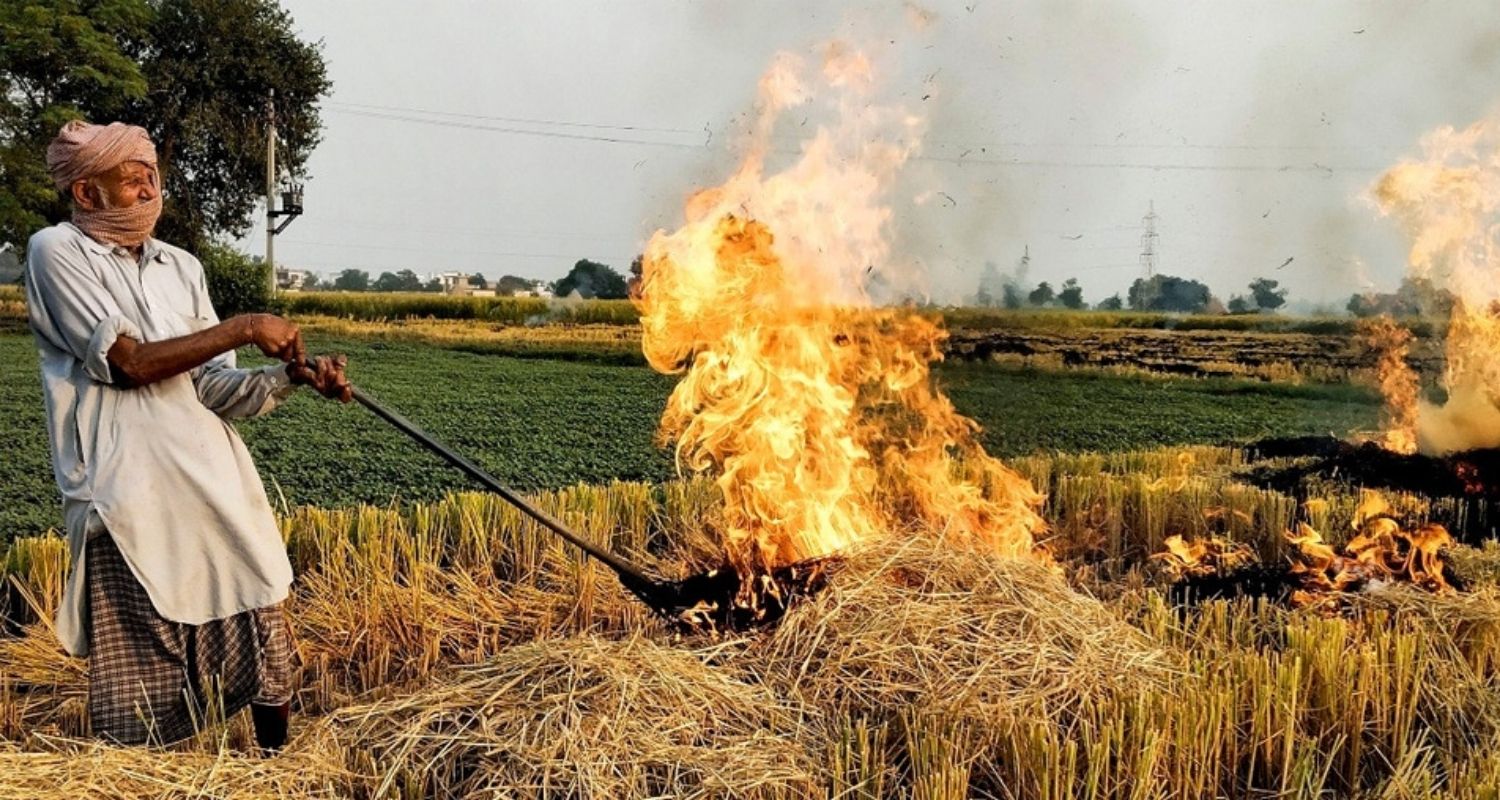As air quality in India's national capital continues to deteriorate, data from the Punjab Pollution Control Board (PPCB) reveals that 308 stubble burning cases have been reported across Punjab since September 15.
The majority of these incidents are concentrated in Tarn Taran and Amritsar districts, exacerbating pollution levels in the Delhi-National Capital Region (NCR).
Tarn Taran Leads with 113 Cases, Followed Closely by Amritsar
Tarn Taran district has recorded the highest number of stubble burning incidents in Punjab so far, with a total of 113 cases. This is closely followed by Amritsar, which has reported 104 cases. Despite repeated appeals from the state government urging farmers to cease the practice, many continue to burn crop residue to quickly clear their fields.

Stubble burning in Punjab and neighbouring Haryana is
frequently cited as a primary contributor to the spike in air pollution across Delhi-NCR. The urgency stems from the extremely short window available for sowing the Rabi crop—wheat—immediately following the paddy harvest in October and November. To expedite field preparation, numerous farmers resort to setting fire to the leftover stubble.
Punjab Records 308 Fire Incidents from September 15 to October 19
According to PPCB data, Punjab has witnessed a total of 308 fire incidents related to stubble burning between September 15 and October 19. Beyond the leading districts, other areas have also seen activity: Ferozepur reported 16 cases, Patiala recorded 15, and Gurdaspur had 7.
The data further highlights a sharp surge in farm fires over the past week, with incidents rising from 116 on October 11 to the current total of 308.
Enforcement Measures: Fines, Recoveries, and FIRs
In response to these violations, authorities have imposed environmental compensation fines totalling over Rs 6.5 lakh across 132 cases, as per PPCB records. Of this amount, more than Rs 4.70 lakh has already been successfully recovered.
Additionally, 147 First Information Reports (FIRs) have been registered in connection with stubble burning. The breakdown includes 61 FIRs in Tarn Taran and 37 in Amritsar. These cases have been filed under Section 223 of the Bharatiya Nyaya Sanhita, which addresses disobedience of orders issued by a public servant.
Also Read: Delhi govt to test 'smog eating' roads to address air pollution
Government Campaign Continues Amid Persistent Practice
The Punjab state government has initiated a widespread awareness campaign to educate farmers about the severe health and environmental consequences of stubble burning while promoting the use of crop residue management machinery as a sustainable alternative. However, the practice persists among many farmers seeking a rapid solution for residue clearance.
Looking at longer-term data, Punjab recorded 10,909 farm fires in 2024—a remarkable 70 per cent decrease compared to 36,663 incidents in 2023. This continues a downward trajectory from previous years: 49,922 fires in 2022, 71,304 in 2021, 76,590 in 2020, 55,210 in 2019, and 50,590 in 2018. In earlier years, districts such as Sangrur, Mansa, Bathinda, and Amritsar were hotspots for large-scale stubble burning events.
Also Read: Water sprinklers deployed at India Gate to mitigate air pollution



